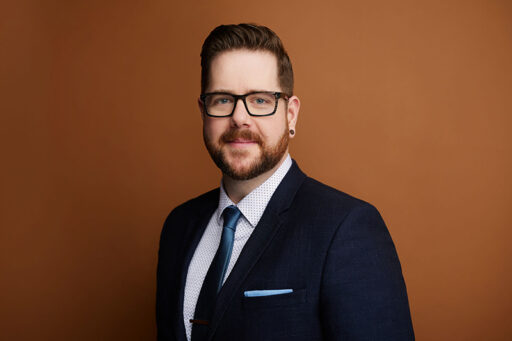College Blog
Your patient asks you to play on her softball team. There’s nothing romantic and you have lots of common interests and a couple of common friends. Should you join the team? I’ve written in my blog about boundaries before—we are pretty clear that dating patients is a problem and that sexual relationships are forbidden. But what about when patients become friends? What are the boundaries then?
I’m not going to tell you that there is a clear answer to this question. This is one of those situations that highlights what sets professionals apart from other sorts of workers. The clerk at the local hardware store does not need to second guess whether it is appropriate to become friends with a customer, but a healthcare provider does: therapeutic relationships entail a level of trust, power and closeness that don’t arise in other situations.
There are at least three reasons you need to be careful. You must be able to remain objective about your patients’ care. You have an obligation to put your patients’ needs ahead of your own, which includes avoiding conflicts of interest. And you have to protect your patients from harm—physical, mental, financial—any possible harm, as much as you can. When your relationships with your patients become too close, it can be difficult to maintain your professional perspective.
I asked Shari Hughes how she would explain this issue. Shari is a PT, Associate Registrar and wise advisor and she said that, “a PT gets to see the patient undressed, gets to ask lots of personal questions (but doesn’t have to answer any) and has control over whether the person gets to go back to work or sport (just to name a few). I think it’s natural to try to equalize that differential by the PT sharing stuff about themselves or by the patient offering their accounting expertise at tax time. I think friendship with a patient is a possibility. However, I think the greater likelihood is for the patient to misunderstand a kindness and to potentially be harmed or for the PT to lose his or her objectivity and for the patient to be harmed.
So, you join the softball team. Now your patient is asking for your advice about her aching Achilles at a game. She trusts your therapeutic skills. Do you give her advice? If you do, are you insured? Do you charge for the advice? Wait a minute—did you do a full assessment or did you make clinically inappropriate assumptions based on the casual environment? Maybe there is something in her history, unconnected to the ball game that led to the problem. You missed it because you were offering advice outside your usual clinic setting. And you were in that position because you were friends. It gets even more complicated if she is a WSIB patient—can you be objective about evaluating her work readiness?
In another example, several of your patients are your Facebook friends. You share a post about your sister’s direct marketing business that sells health and beauty supplements. Your patients take this post as clinical advice and buy things they otherwise never would. After all, they trust your judgement about health-related things. But your sister makes money off of your patients and that could be a conflict of interest for you.
Our best advice? Use your good judgement, but it’s probably safest to avoid all personal relationships with patients.
If you are in a small community, this will be nearly impossible and we understand that. In your case, you will have to take special care to ensure that you do everything you can to remain objective, put your patients’ needs first, and to protect them from harm.
I’ll let Shari have the final word, “I wonder whether what we are talking about is treating everyone the same so that the likelihood they’ll misunderstand or be hurt or taken advantage of (whether intentional or accidental) is lower? And by treating everyone the same I don’t mean EXACTLY the same, but within the same general limits or boundaries. I guess you could call it keeping appropriate patient-specific professional distance. For example, the prim and proper 86-year old Mrs. Smith will always be “Mrs. Smith” but the 17 year old skateboarder can be “dude” (do they still make skateboards?) And maybe it’s okay to go to Sally’s first violin recital after her wrist fracture rehab, but you definitely wouldn’t accept Johnny’s mom’s invitation for dinner…”











Share Your Thoughts